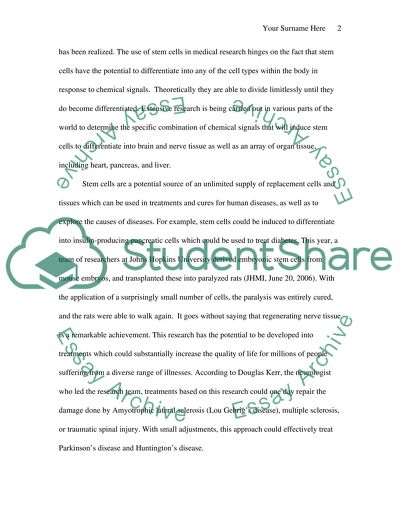Cite this document
(“Should Human Embryonic Stem Cells be used in Scientific Research Essay”, n.d.)
Should Human Embryonic Stem Cells be used in Scientific Research Essay. Retrieved from https://studentshare.org/miscellaneous/1504983-should-human-embryonic-stem-cells-be-used-in-scientific-research
Should Human Embryonic Stem Cells be used in Scientific Research Essay. Retrieved from https://studentshare.org/miscellaneous/1504983-should-human-embryonic-stem-cells-be-used-in-scientific-research
(Should Human Embryonic Stem Cells Be Used in Scientific Research Essay)
Should Human Embryonic Stem Cells Be Used in Scientific Research Essay. https://studentshare.org/miscellaneous/1504983-should-human-embryonic-stem-cells-be-used-in-scientific-research.
Should Human Embryonic Stem Cells Be Used in Scientific Research Essay. https://studentshare.org/miscellaneous/1504983-should-human-embryonic-stem-cells-be-used-in-scientific-research.
“Should Human Embryonic Stem Cells Be Used in Scientific Research Essay”, n.d. https://studentshare.org/miscellaneous/1504983-should-human-embryonic-stem-cells-be-used-in-scientific-research.


